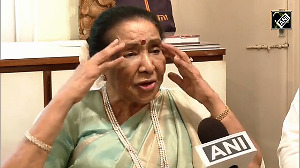The retail trading sector is in for a shakeup, with the government planning to carve out a new category -- organised retail business -- where foreign direct investment can be allowed. This will ensure that entrants in the sector do not drive neighbourhood stores out of business.
Officials said the Centre, under the definition of organised retail business, would fix the threshold limits of minimum investment and the scale of operation for a potential investor.
The Cabinet note allowing foreign investment would be prepared only after the definition of organised retail business was finalised, they said.
The sources said multinational companies using the franchisee route to enter the market had forced the government to revisit the issue of FDI in the sector.
Officials told Business Standard some ministries were pushing for allowing up to 26 per cent FDI in certain retail activities, while insisting on complete management control with the Indian partner on the lines of the regulations for print media.
"Despite the ban on foreign investment in retail trading, companies like McDonald's, Marks & Spencer and Subway are already present in India through the franchisee route, raising concerns over the government policy," an official said.
Based on directions from the Foreign Investment Promotion Board, the government had appointed economic think tank Icrier to assess the definition of retail trading and the impact of foreign investment in the sector.
Recently, Icrier made a presentation to representatives from several government departments, including consumer affairs and commerce.
"Icrier made some suggestions but no decision has been taken. The meeting was essentially to understand the legal provisions and we are examining the WTO rules on the issue," an official in the consumer affairs ministry said.
Commerce department officials said the government wanted to ensure that even if it allowed FDI in retail trading, which is viewed as a critical sector, Indian workers should not lose jobs to foreigners.
"If you go by evidence available with us, there is nothing to suggest that McDonald's employs foreigners to serve at its outlets in India or Nokia is getting foreigners to sell its phones. If foreign players are allowed to enter in such a manner, consumers will gain and at the same time no Indian will lose his job to a foreigner. However, the process of opening up the sector has to be gradual," another official said.
Unlike in other sectors, India is unwilling to accept the WTO's definition of retail trading under the General Agreement on Trade in Services.
In the recent past, some countries like the US have been putting pressure on India to open up the sector during the current round of services negotiations at the WTO. India has not accepted the request in its offers submitted to WTO in December.
Officials said the move was not based on pressure from some trading partners but the process of review had been started even before the offers were submitted to WTO.
A decision on the issue will be taken up only after a new government is in place.




